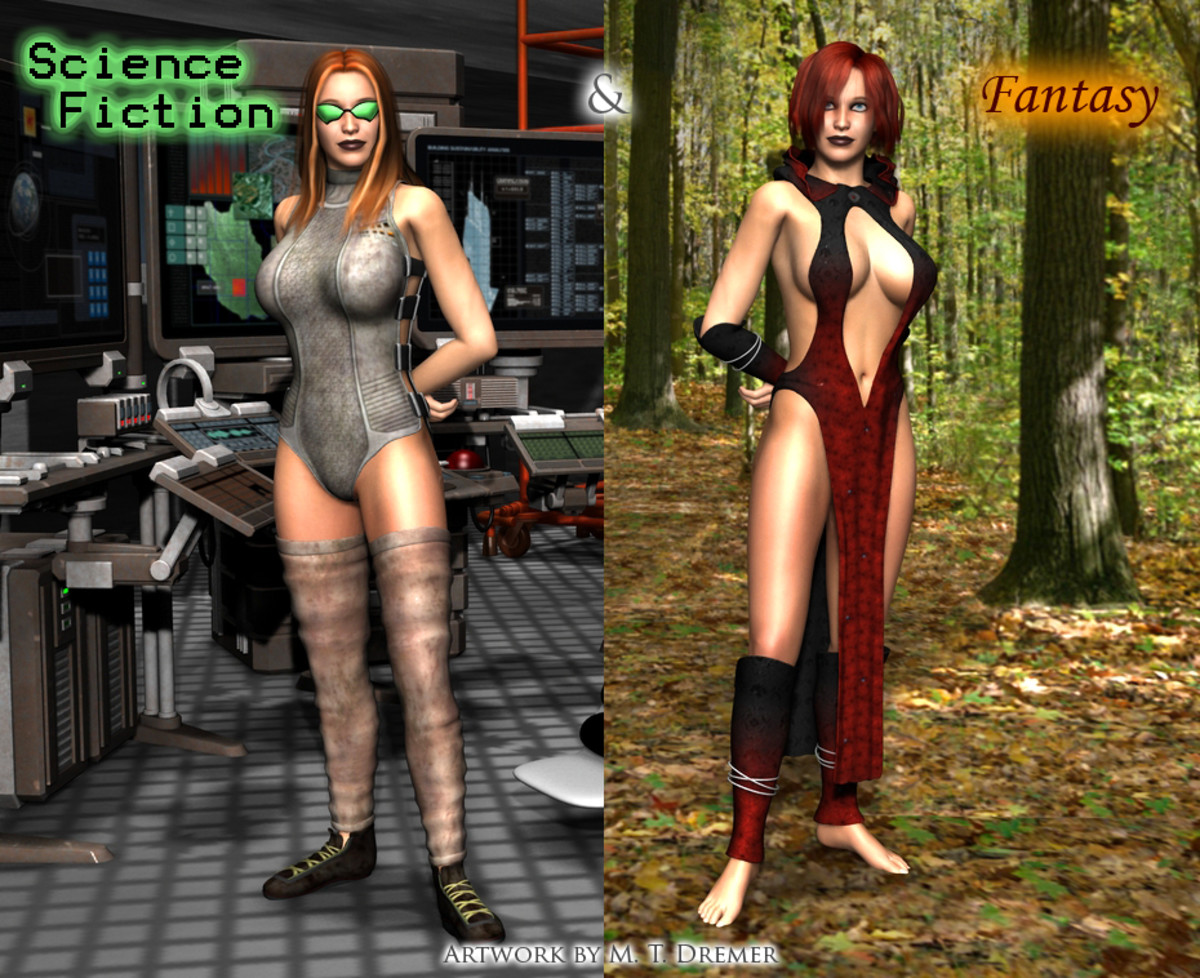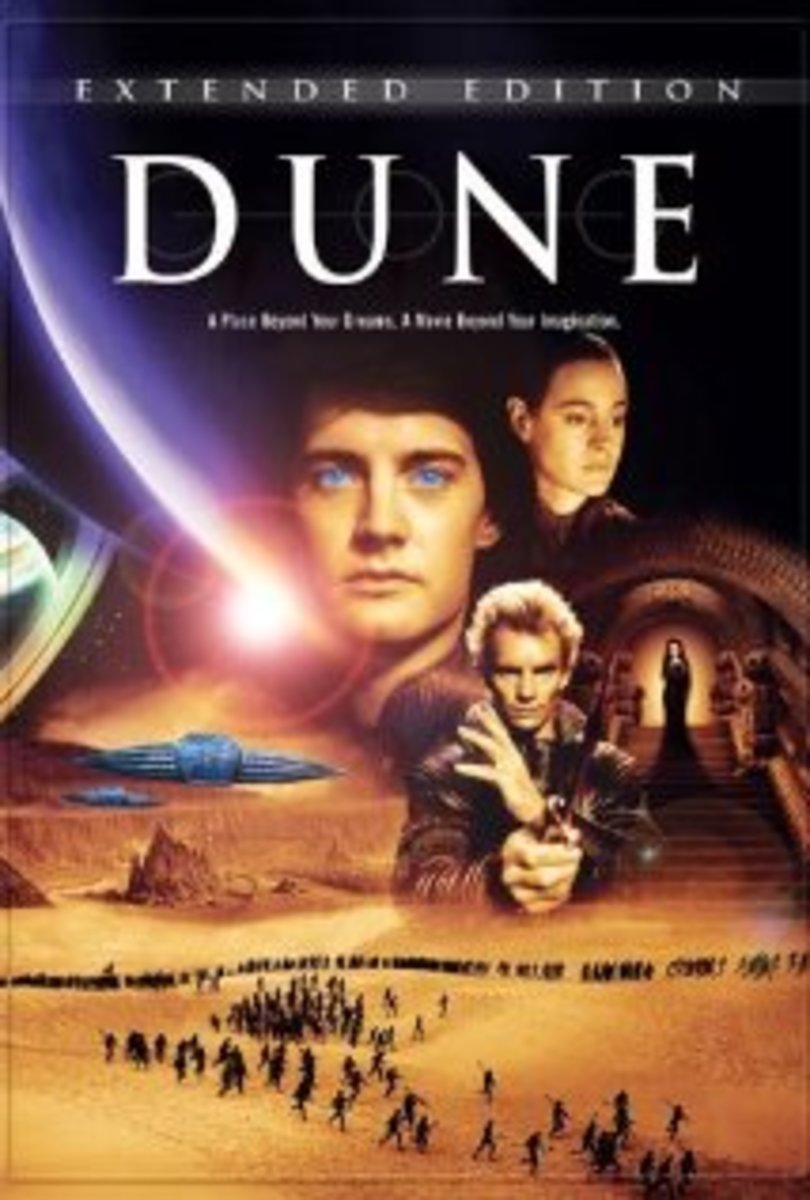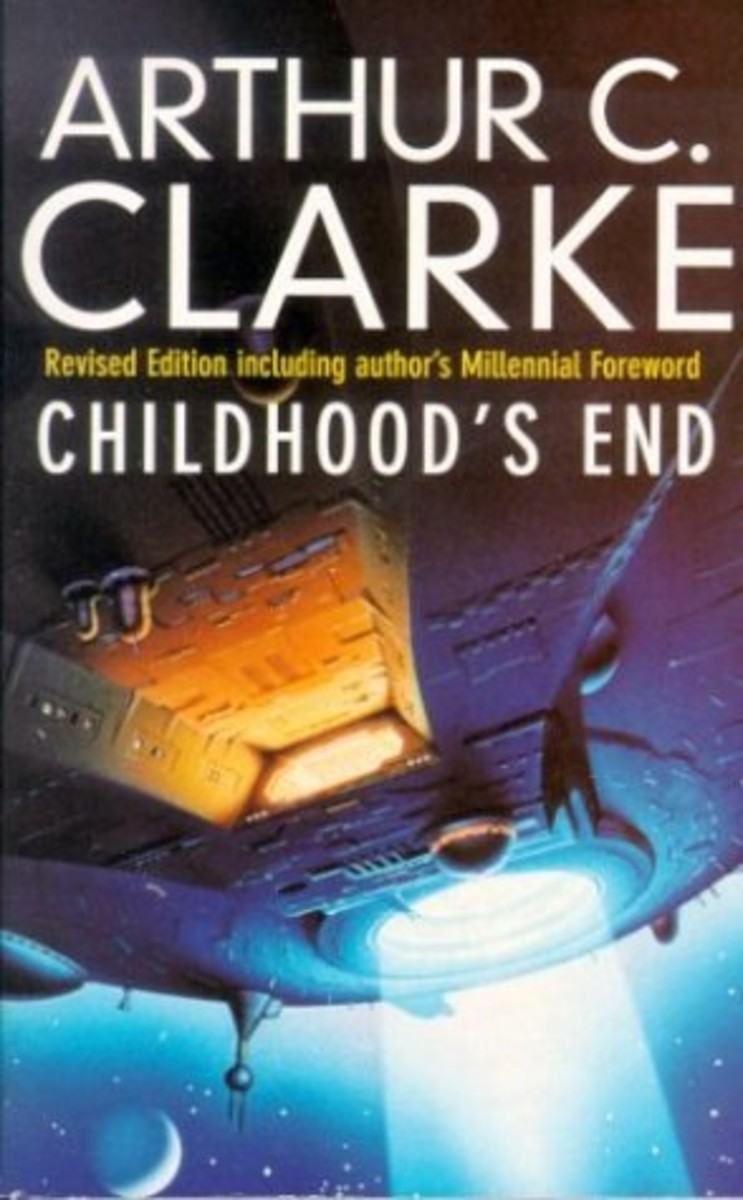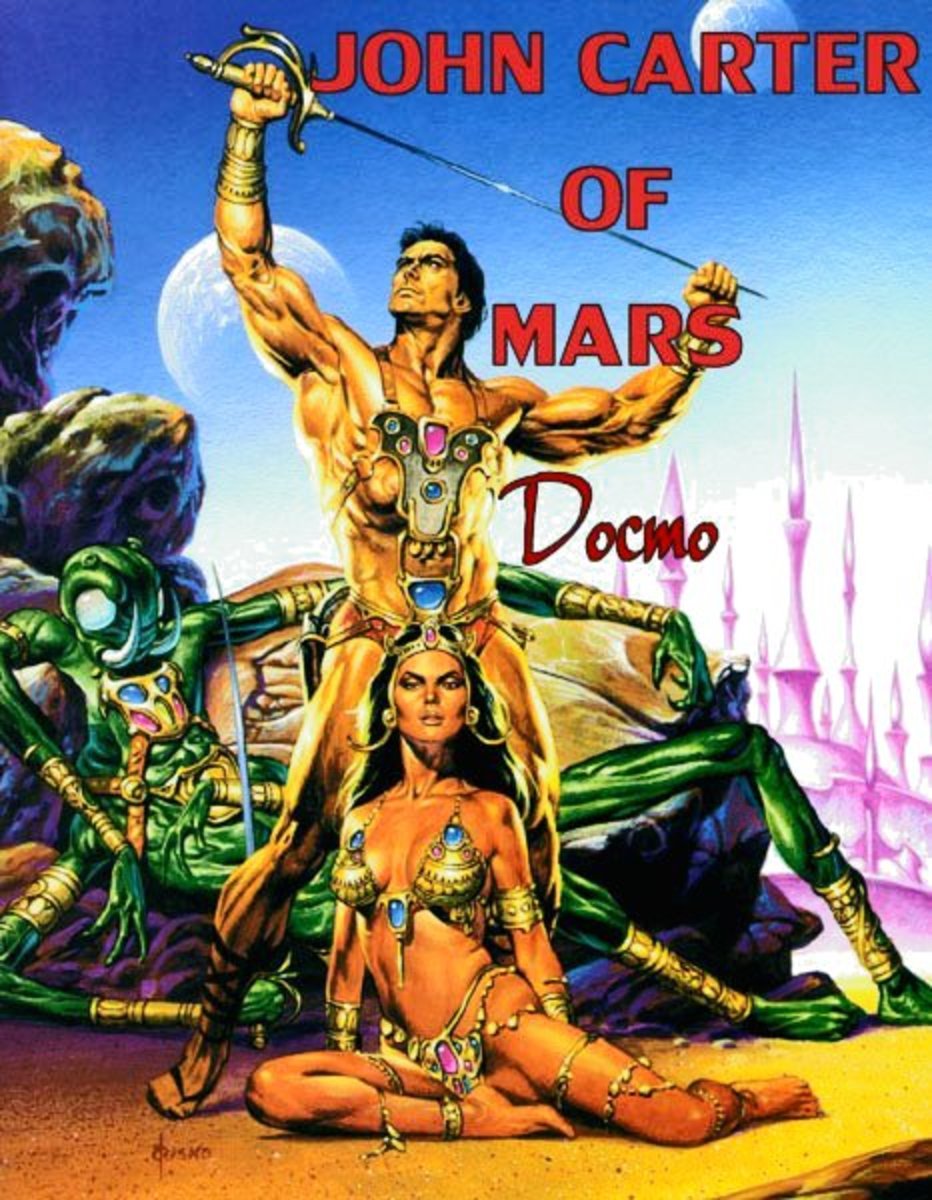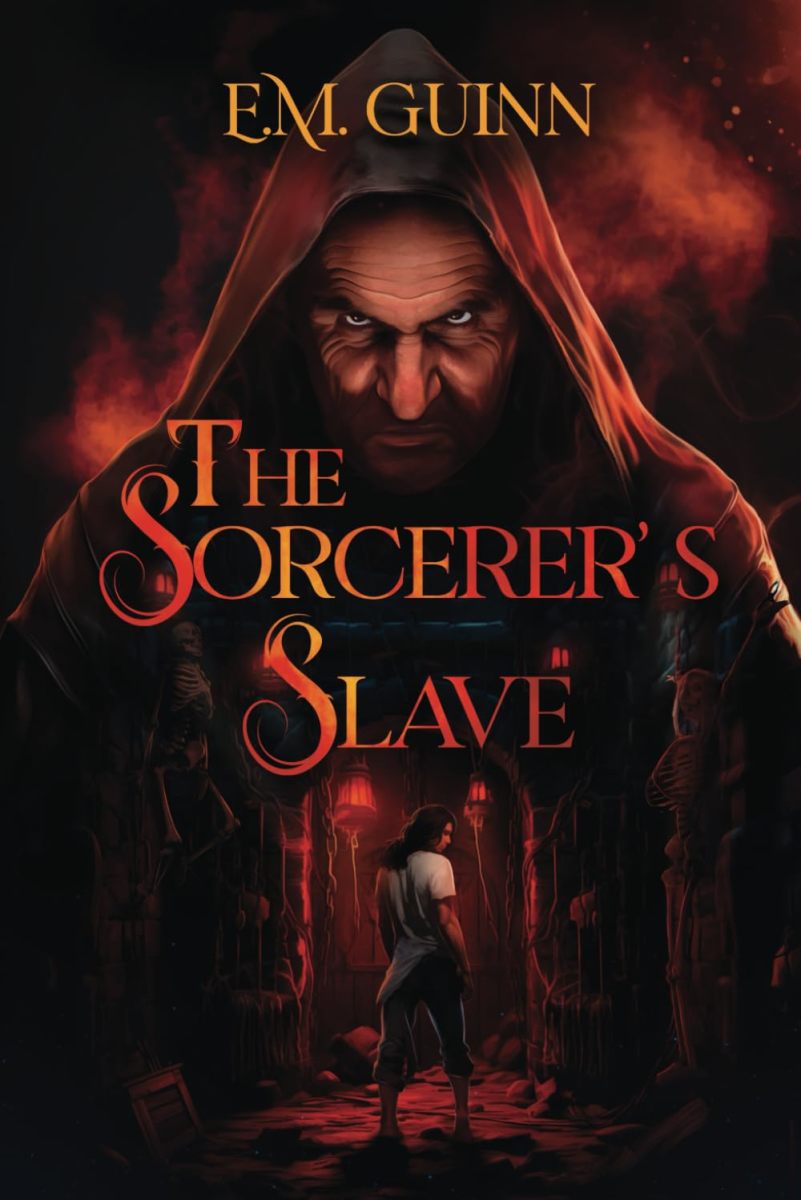- HubPages»
- Books, Literature, and Writing»
- Books & Novels»
- Fiction»
- Science Fiction & Fantasy Books
Science Fiction, Fantasy, and Religion
SFF and Religion
Science fiction and Fantasy (SF/F) novels and stories often use religious themes as an integral part of the story. This may be due generally to the experimental or exploratory nature of the Science Fiction and Fantasy genre. Of course, the use of religious themes by SF/F authors does not mean that religious faith is necessarily being promoted. Often, the stories are critical of religion as a human institution and theology as a relevant way of thought. However, in this article we consider the use of religious themes in SF/F to achieve different storytelling perspectives using stories that deal with questions of a spiritual or religious nature.
Religious themes cataloged in SF/F as follows:
- After life, eternal state
- Angels and Demons
- Church
- Eschatology, end times
- God(s)
- Hell and punishment
- Humanity, what it means to be human
- Jesus (divine, human, fictional)
- Messiah, who saves humanity
- Metaphysics, forces, powers, and knowledge
- Morality
- Sin and evil
- Theocracy, political governance by religion.
Within these themes, some characters assume a Creator exists while others are agnostic or atheistic. But they all operate and behave in ways that shed light on the author's use of religion.
The Big Questions
There is almost a kind of religious dialogue conducted by SF/F authors across the years as one author's story is responded to by that of another author. One example, Philip Pullman stated that C.S. Lewis' stories were an inspiration for him to write His Dark Materials. Lewis is very Christian, while Pullman hates the church and Lewis almost as much as atheists like Richard Dawkins hate every religion but their own peculiar kind of Scientism.
It is interesting that a discussion of the "Big Questions" of life are carried on more within a literary genre rather than within the halls of academia. With the rise of analytic philosophy and logical positivism, academic philosophers began ignoring the big questions, emphasizing instead tiny logical clarification of thoughts, asserting that the big philosophical questions no longer exist. This kind of postmodernism is typically atheistic or agnostic. Some prefer to follow eastern religion thoughts and practices which do not promote a personal deity. Many substitute humanitarianism or environmentalism for traditional religion, choosing to place their faith in naturalism and evolution rather than a Biblical Creator.
Of course, my own story, The Beginning of This, The End of That, is an inverted coming-of-age literary novel that places two agnostic, twenty-first century college graduate students in a pagan (7th century) fantasy world and lets the conflict between naturalism and supernaturalism, secular versus religious societies play out.
A Sample of Writers and Their Stories
There are many writers and SF/F stories that use religion and theology as a platform. All of this bubbles up to the minds and imaginations of SF/F writers. Here's a brief sample of some of the famous ones that use religion/theology in their storytelling.
Robert A. Heinlein's Stranger in a Strange Land
In the past writers like Robert A. Heinlein (once a Baptist) solved the struggles of humanity in his story Stranger in a Strange Land, where his protagonist, Valentine Michael Smith (raised on a Mars of the future), turns Martian philosophy into a human religion. As a messiah, Smith has pyschic abilities and powers that set him apart from other humans. Heinlein gives us a Martian religion based upon an eastern idea of the oneness of everything. He supplies an afterlife of wise spirits and a Holy Communion where the bereaved eat the body of their dead. Heinlein creates a Church of All Worlds for his character to run that practices initiation similar to that of ancient mystery religions, but also teaches its members how to respond to suffering. It was all done so compellingly that an actual religion was founded by Tim Zell which patterned its principles after the fictional church.
Frank Herbert's Dune
The messiah in Frank Herbert's Dune, Paul Muad'dib, combines characteristics of an Arab Muslim prophet and some Christian messianic concepts. Like Jesus, Paul Atreides suffers before being elevated to Divinity. The idea of the spoken word becoming a physical weapon, the water of life, the nun-like order of the Bene Gesserit, are a few of the many elements of Christianity, Islam, and Buddhism Herbert used in the story. Some unique ideas of Herbet's include a God who, "likes to be surprised" and the use of the spice melange to aid both space travel in the physical universe and omniscience in the spiritual.
Lafayette Ronald Hubbard's Dianetics
Another SF/F writer who's ideas were directly responsible for starting a church was Lafayette Ronald Hubbard whose creation we know as the Church of Scientology. Like many eastern religions, his church focused on techniques for spiritual growth more than a set of religious doctrines. Once Hubbard's ideas for Dianetics became clear, he shifted from science fiction writing (over 138 pulp novels) to writing about his new faith in books like Dianetics: The Modern Science of Mental Health.
C. S. Lewis' Space Trilogy
C. S. Lewis' Space Trilogy, consists of the novels Out of the Silent Planet, Perelandra (Voyage to Venus) and That Hideous Strength. Lewis, an outspoken Christian, uses characters with motives and actions that appear based upon Biblical examples. Oyarsa is like Lucifer, Maleldil the Young is like Jesus, and the Old One seems to be God the Father. If you remember, the reason the planet Earth is silent is that only its inhabitants have rebelled against the Old One. Elsewhere in the universe, all of creation rejoices in Him. Book 2, takes place on Venus where a new Adam and Eve (Tinidril) live in a new Garden of Eden. A human physicist, Professor Weston, travels to Venus to corrupt her innocence. The story focuses on the hero Elwin Ransom's attempts to prevent another "fall". In his battle with Professor Weston, Ransom goes beneath the earth in a struggle that has some parallels to Dante's Inferno. In Book 3 an exploitative agency N.I.C.E. threatens to destroy humanity, with the help of evil spirits (fallen Eldila). The protagonist Dr. Elwin Ransom, with the help of good spirits, forms the St. Anne group to opposed to the progressives of Bracton College who are allied with N.I.C.E. There's a lot of drama about propaganda and political intrigue, however pagan elements like the speaking severed head of Alcasan are intermixed with Christian ones like the wounded heel of Ransom. A final Armageddon of blasts and earthquakes destroys evil people and gives victory to the St. Anne group and their animal allies.
Philip Pullman's His Dark Materials
Of course, in the His Dark Materials trilogy, Philip Pullman gives us three stories that oppose Lewis' tale. In Pullman's story it is the church that is evil and the struggling professors and scientists that are good. The universe is filled with many parallel dimensions and universes the church wants to ensure the common man never discovers. In Pullman's world everyone has a "daemon" and daemons are good. The moral struggle is against control by the Supreme Being who is revealed to be a worn out old man, barely kept alive by a crystal box he lies in.
Baptist SF/F Writers
There is a surprising wing of Baptist SF/F story tellers. Stephen R. Lawhead Pendragon Cycle tells an Arthurian story with decidedly Christian overtones. Theodore Beale The War in Heaven tells of angels fighting for control of a special boy. In Robert Don Hughes' series The Wizard and Dragon, the plot focuses on a wronged man having to right the evil of another and protect his wife from a dragon. Calvin Miller gives us The Singer Trilogy, a fantasy prose-poem retelling of the Gospel story. There is at least eight additional Baptist SF/F writers we do not have space to mention.
Secular SF/F Writers
Famous writers like Philip Jose Farmer The Riverworld series, Lucas Cole's Resurrection Planet is connected with the Second Coming, and J. R. R. Tolkien, George MacDonald, Charles Williams, Arthur C. Clarke, Isaac Asimov, among many others provide Christian and non-Christian religious perspectives. Sorry, we did not mention all the Star Wars, Star Trek, Star Gate, and other movies and books that have underlining religious themes.
Stories about Jesus
Before concluding, we should mention some books about Jesus. These include Richard Matheson's The Traveller (1954), John Brunner's Times Without Number, Arthur Porges's story The Rescuer, Michael Moorcock's Behold the Man, John Boyd's The Last Starship from Earth, Poul Anderson's book There Will Be Time, Garry Kilworth's Let's go to Golgotha, Jeremy Robinson's The Didymus Contingency, and finally Simon Hawke's TimeWars series. Most of these stories are not particularly friendly to either Jesus or the Church.
Conclusion
What is amazing is that while the university professors are off in their corner arguing about precise meanings and logic, and the ministers huddle in an opposite corner trying to animate the Biblical stories for an often unmoved and diminishing audience; but here in the science fiction and fantasy nation, the debate goes on. Most people don't like to have their beliefs challenged. Some sit quietly in the philosophy class never asking a question of offering an opinion. Others attend the church of their choice, where they hear nothing from the pulpit that challenges their thinking.
But it is not safe if you open a book with a religious or theological SF/F theme. You are liable to read something that will poke you on the chest and ask, do you really know what you believe about the big questions? If you are going to write SF/F, you'd do well to study up. Get to know what those cataloged religious themes mentioned earlier are all about. A great story may just leap to mind.



